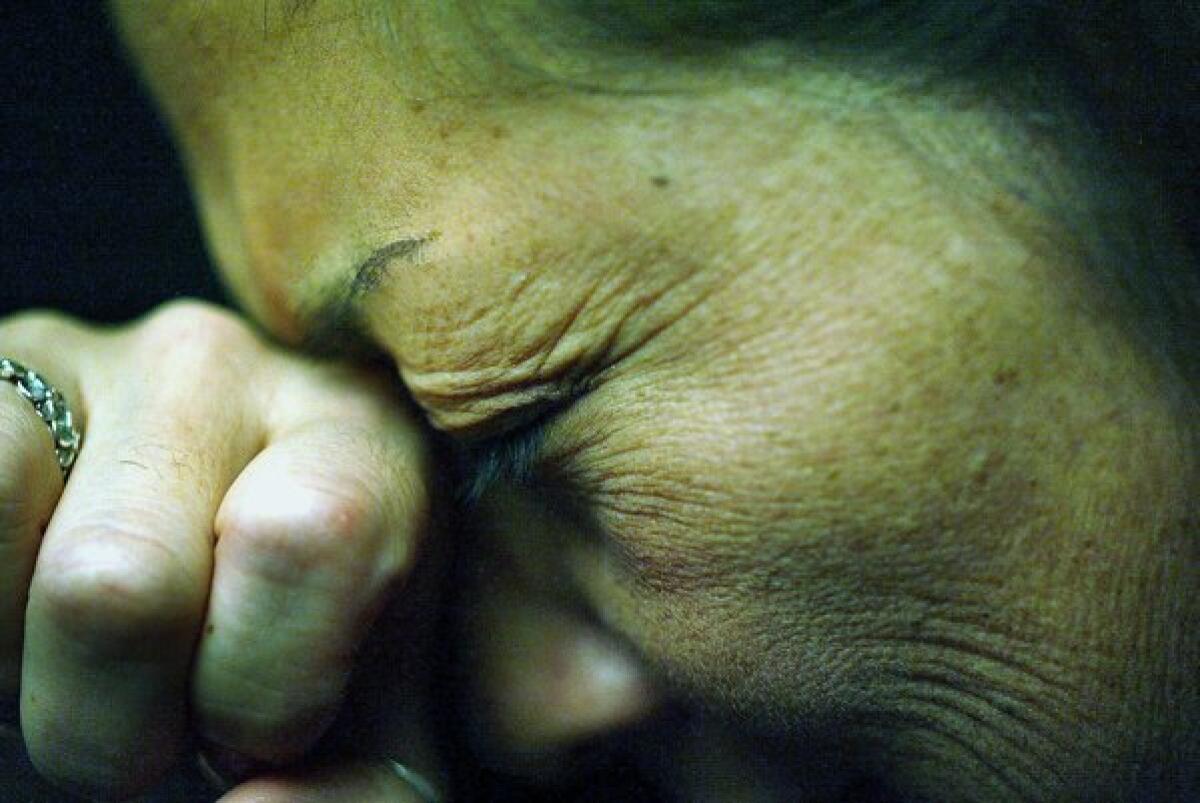Women with migraines are more likely to have small brain lesions

- Share via
Women who suffer from migraines are also more likely to have small brain lesions, according to a study in the Journal of the American Medical Assn., though the lesions do not appear to be harmful.
Researchers believe that the lesions, which are visible on a magnetic resonance imaging brain scan and are called white matter hyperintensities, are caused by small strokes in the brain.
Past studies have related white matter hyperintensities and migraine, but little was known about whether the small lesions were harmful, whether they got bigger over time, or whether they make migraines worse.
The new study utilized a group of Dutch patients and control subjects who originally took part in a large study of migraine in 2000 called “Cerebral Abnormalities in Migraine, an Epidemiological Risk Analysis,” or CAMERA-1. The study released Tuesday is called CAMERA-2, and revisits the same participants nine years later.
CAMERA-2 found that 77% of women with migraine had more lesions in their brains in 2009 than in 2000, compared with 60% of women in the control group, while men showed no difference. But the lesions did not appear to increase the frequency or severity of migraines or cause cognitive decline, suggesting they may be relatively benign. What’s more, even in women with migraines, the overall amount of lesioned brain tissue was quite small. Researchers had also feared that the hyperintensities might increase risk of larger strokes in the brain, but that did not appear to be the case during the period of the study.
In an editorial published alongside the CAMERA-2 study, Dr. Deborah Friedman of the University of Texas Southwestern Medical Center and Dr. David Dodick of the Mayo Clinic wrote that the results should be “reassuring for patients and their physicians on several levels.” Though the lesions did increase in women, the overall effect was small and “likely clinically insignificant,” they wrote, a conclusion supported by the fact that the study did not find that the lesions were related to cognitive decline or migraine severity.
Nevertheless, Friedman and Dodick said the jury was still out on what effect the lesions might have in the long term, raising the question of whether they might increase the risk of dementia or stroke later in life.
As a result, they said, “addressing modifiable risk factors for stroke — such as obesity, smoking, hypertension, hypercholesterolemia, and physical inactivity — and avoiding high-dose combined oral contraceptives in women older than 35 years and in those with untreated or poorly controlled vascular risk factors seems prudent.”
Return to the Booster Shots blog.



